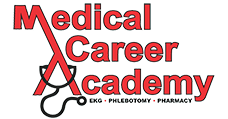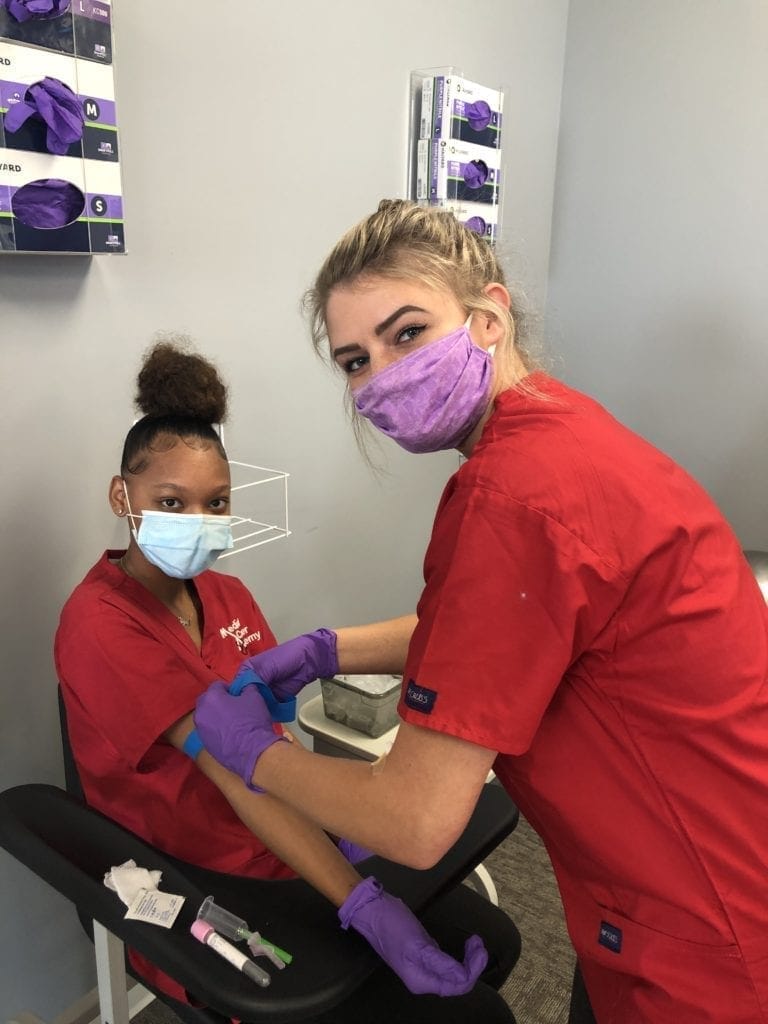Medical Career Academy offers many Allied Health Science programs that include; Medical Assistant, Phlebotomy, EKG, and Pharmacy Technician. Many of the programs differ in length, job responsibilities, certification, and tuition cost. Our two most popular programs are Medical Assistant and Phlebotomy. Very often we receive calls from potential students asking us the difference between the two programs so they can better decide what education will work better for them. So we decided why not write a blog!? This way we can specifically highlight the differences between those two programs so our prospective students can have all the information needed to assist in their new career choice!
So let’s begin with the Medical Assistant program! At MCA we offer a 5-month program that has an intern externship implemented at the end of the program. Please note this externship is not mandatory but is a great option for students that have the time to dedicate to an internship to gain more experience in the skills that were taught during the program. In this program, you learn many skills that include; EKG, Phlebotomy, Vitals, and injections. These are considered the clinical skillset that you need to execute your job responsibilities effectively. You will also learn the administrative side of things in the medical arena. These include; billing, coding, scheduling appointments, healthcare information systems, and HIPPA. This is a comprehensive program that teaches you many different things that you will have to orchestrate as a Certified Medical Assistant.
Please note that although you may learn many clinical skills in this program you are only certified as a Medical Assistant upon completing the class. This is a common misunderstanding that many prospective students have while asking questions about the course. You will not individually be certified in EKG or Phlebotomy upon completion of the Medical Assistant program. Although the program does highlight these skills and teaches the basics of completing these tasks it does not devote the time needed to get certified in that specific area. We mention this because unfortunately other schools have advertised their specific Medical Assistant program as a way you will be certified in all of these specialties and that is not correct. In order, to be certified in Phlebotomy or EKG (specifically) you would need to complete those programs separately. Is that needed to be a Medical Assistant? Absolutely not! Again the Medical Assistant program is set up for you to achieve all competency levels in clinical and administrative skills to pass your certification successfully!
Our graduates that complete the Medical Assistant program is at the highest demand for employment opportunities compared to our other allied health science programs! We constantly receive calls, emails, and even visits from clinical sites seeking our graduates!
So now that we have a Medical Assistant explained let’s talk about Phlebotomy! At Medical Career Academy our Phlebotomy program is 9 weeks in length and meets weekly. Often when people think of Phlebotomy they think of sticking people with needles to obtain blood. Although that is true and we are often called the “vampires” of the hospital there is a lot more theory that goes into the actual job than just taking blood from patients. As Phlebotomists we are an integral part of the medical team because there is a skill that has to be perfected to be successful in lab draws. There is also a lot of theory that needs to be comprehended to perform the job effectively. So what does this theory touch base on? You need to learn the order of draw, the additives of tubes, the blood test that may be ordered, special blood collection, and dermal punctures. While in the class you will be exposed to all of these theoretical concepts and also taught all the clinical skills that are the foundation of drawing blood successfully. Other things you will learn? Legal issues that may arise in the profession! Patient’s rights, consents, HIPPA, and lab protocols. So as you can see there is a lot that goes behind this profession!
Other clinical skills you will learn besides a basic venipuncture are capillary draws, special blood collections, and winged infusion sets!
So as you can see our Phlebotomy program is all things Phlebotomy! Medical Assistant is a wide spectrum of clinical and administrative skills that specify in many medical arenas that you may be exposed to in your career. It is important that you do the research and evaluates thoroughly which program will work best for you!

